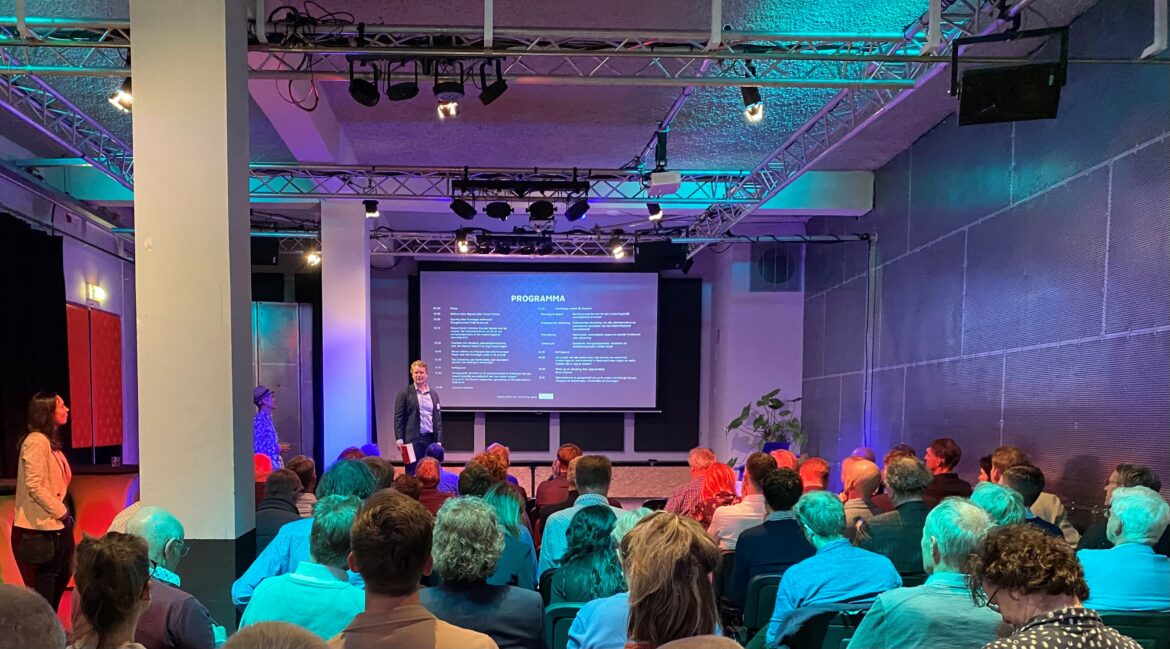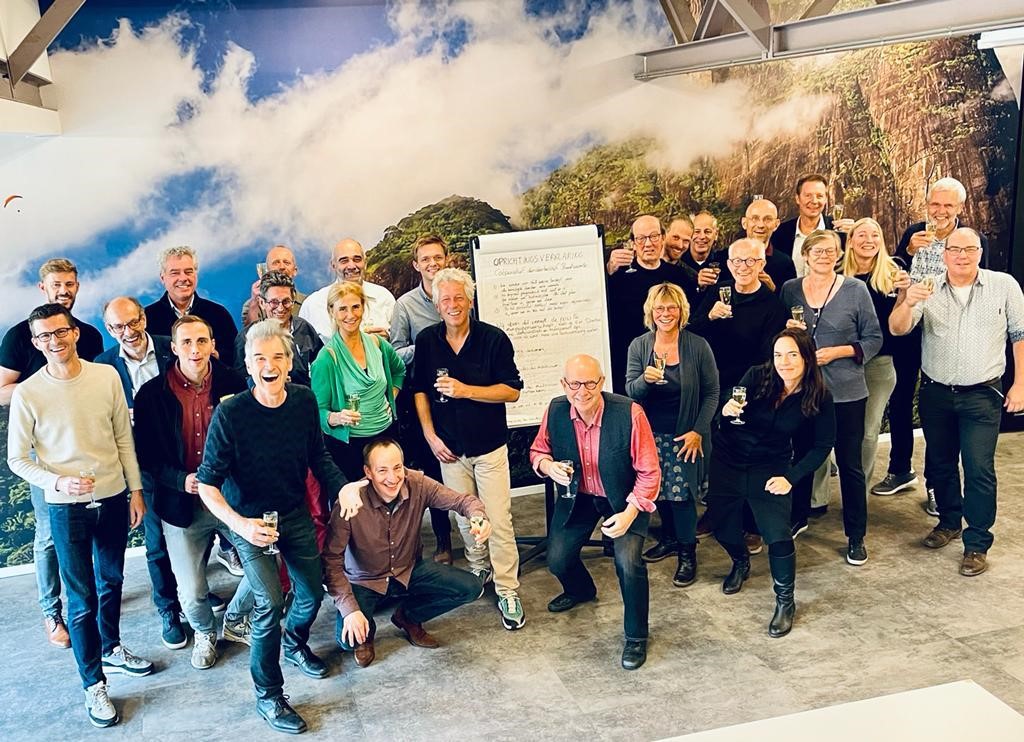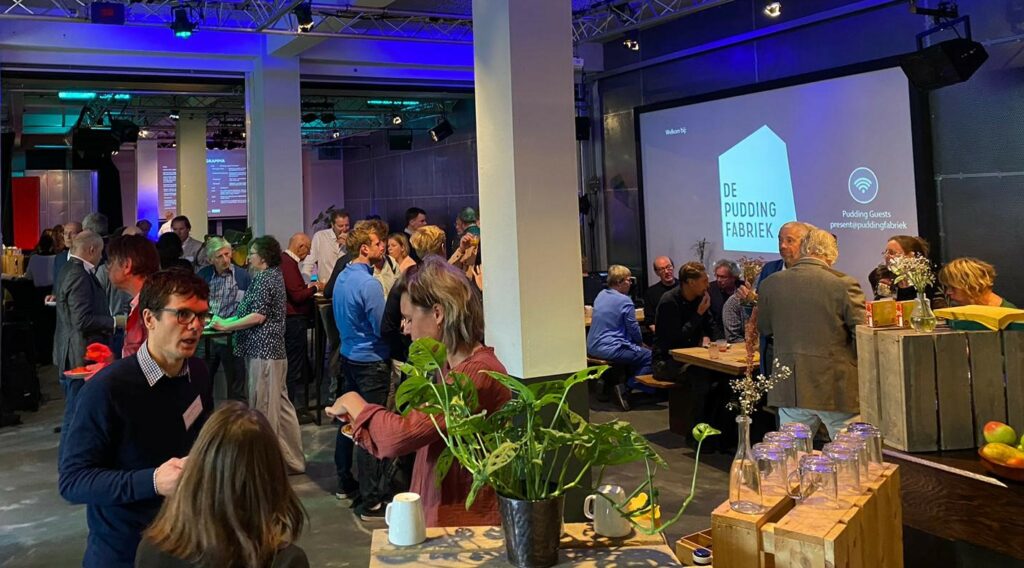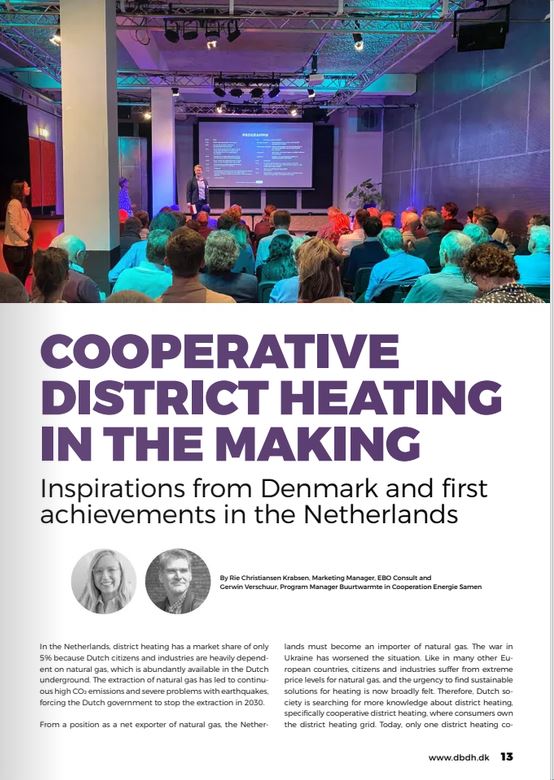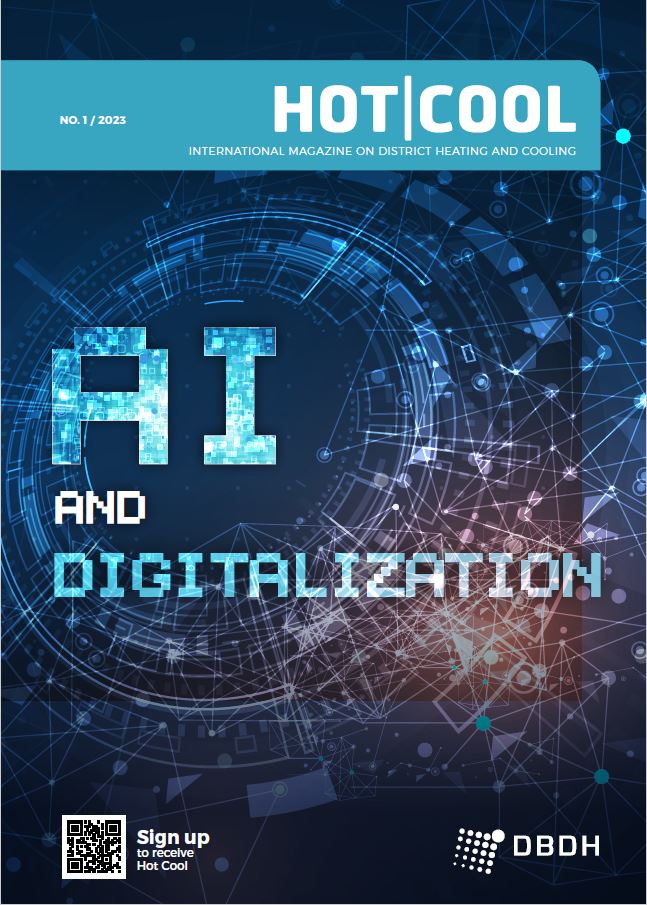Inspirations from Denmark and first achievements in the Netherlands.
In the Netherlands, district heating has a market share of only 5% because Dutch citizens and industries are heavily dependent on natural gas, which is abundantly available in the Dutch underground. The extraction of natural gas has led to continuous high CO2 emissions and severe problems with earthquakes, forcing the Dutch government to stop the extraction in 2030.
By Rie Christiansen Krabsen, Marketing Manager, EBO Consult and
Gerwin Verschuur, Program Manager Buurtwarmte in Cooperation Energie Samen
Published in Hot Cool, edition no. 1/2023 | ISSN 0904 9681 |
From a position as a net exporter of natural gas, the Netherlands must become an importer of natural gas. The war in Ukraine has worsened the situation. Like in many other European countries, citizens and industries suffer from extreme price levels for natural gas, and the urgency to find sustainable solutions for heating is now broadly felt.
Therefore, Dutch society is searching for more knowledge about district heating, specifically cooperative district heating, where consumers own the district heating grid. Today, only one district heating cooperative exists, but around 80 initiatives are in the process of establishing a district heating cooperative. In Denmark, there exist about 323 district heating cooperatives.
A grant from the Danish Energy Agency
For many years EBO Consult A/S has held a lot of presentations about district heating at international seminars and conferences. Every time the focus has been on cooperative district heating– how consumers can manage and operate district heating and how the Danish regulations of district heating enable cooperatives to exist under a not-for-profit regime.
After the presentations, there have been numerous requests and questions about district heating, which has often resulted in sparring processes about implementing district heating in various countries. One of the ongoing collaborations has been with Cooperatie Energie Samen, a Dutch membership organization that wishes to support the development of cooperative district heating.
In 2020, The Cooperatie Energie Samen and EBO Consult A/S developed an application for the Danish “Energy Export Initiatives Grants program.” At the end of 2020, we got the happy news that we received a grant. EBO Consult A/S has been sharing know-how with Cooperatie Energie Samen since then.
Together, we have written a comparative study of the Danish and Dutch district heating markets focusing on cooperatives. We have taken significant steps to develop the beginning structures of a cooperative support organization that helps local district heating initiatives to grow and be implemented.
Danish and Dutch comparative study
The study investigates cooperative district heating in Denmark and the Netherlands, where we focus on political, legal, financial, and organizational themes. But also about the roles of municipalities in the heat planning process, the available district heating technologies, the district heating marketing, the tendering process, the construction process of district heating, and the maintenance of district heating.
We discovered several remarkable differences in cooperative district heating in the two countries during the writing process. In Denmark, district heating cooperatives have existed for many years. They are legally positioned as any other district heating company and are tariff regulated by the non-profit principle, where costs and revenues balance. The principle follows that it is impossible to profit from producing and supplying heat in Denmark.
In the Netherlands, district heating cooperatives are only partially accepted and need to be manifested in policy or implemented in the heat law. In addition, it is possible to make a profit by delivering heat. The Dutch tariff regulation is founded on the NMDA principle, which means that the prices should not surpass the costs a natural gas user would have for the same amount of heat – in other words, “a cap.”
Every year, at the end of December, the ACM (national regulatory authority) publishes the maximum prices that district heating companies can ask their customers for the heat and cold supply. This is just one of the many examples in the study where there are differences between the conditions for developing cooperative district heating in Denmark and the Netherlands.
From the Dutch perspective, the analysis works as an inspiration on how to expand cooperative district heating in the Netherlands. From the Danish perspective, the study can be read in the start-up phase of expanding and exporting district heating in the Netherlands because it gives an overall picture of which differences and similarities between the two countries one can be aware of when working with district heating.
First steps toward a Dutch district heating support organization
Another aim of the project was to develop a Dutch district heating support structure similar to EBO Consult A/S that enables cooperative initiatives to develop and operate district heating projects. On the 22nd of September 2022, we arranged a meeting with ten cooperatives from across the Netherlands. Every cooperative signed a declaration to develop the support organization jointly, and the first steps toward its development and implementation are already moving ahead.
On the following day, the 23rd of September 2022, we held a Dutch conference about how municipalities, public organizations, and cooperatives can collaborate to develop public-civil district heating enterprises.
At the conference, there were representatives from Dutch municipalities, Klimaatverbond, ministries of the Dutch state, and several district heating cooperatives. Representatives from the Danish Embassy in Haag, EBO Consult A/S, and Hvidovre municipality joined the conference.
The conference’s outcome was a list of building blocks to foster the development of cooperative district heating in the Netherlands. As a direct spin-off from the conference in Groningen, the Dutch commission for the climate agreement invited Energie Samen and the Danish Embassy to organize a workshop of 75 minutes on the day of the Climate Agreement in Utrecht on the 3rd of November 2022.
This workshop centered around the cooperative model for the expansion of district heating in the Netherlands. Another spin-off from the conference in Groningen was a joint effort of municipalities and cooperatives to get the definition of energy communities, as defined in European law, in the revised Dutch Heat Act that is under preparation.
This definition is of great importance to get, similar to the Danish district heating model, the non-profit principle established in the law for cooperative district heating.
In other words, Dutch cooperative district heating is in the making with inspiration from Denmark.
